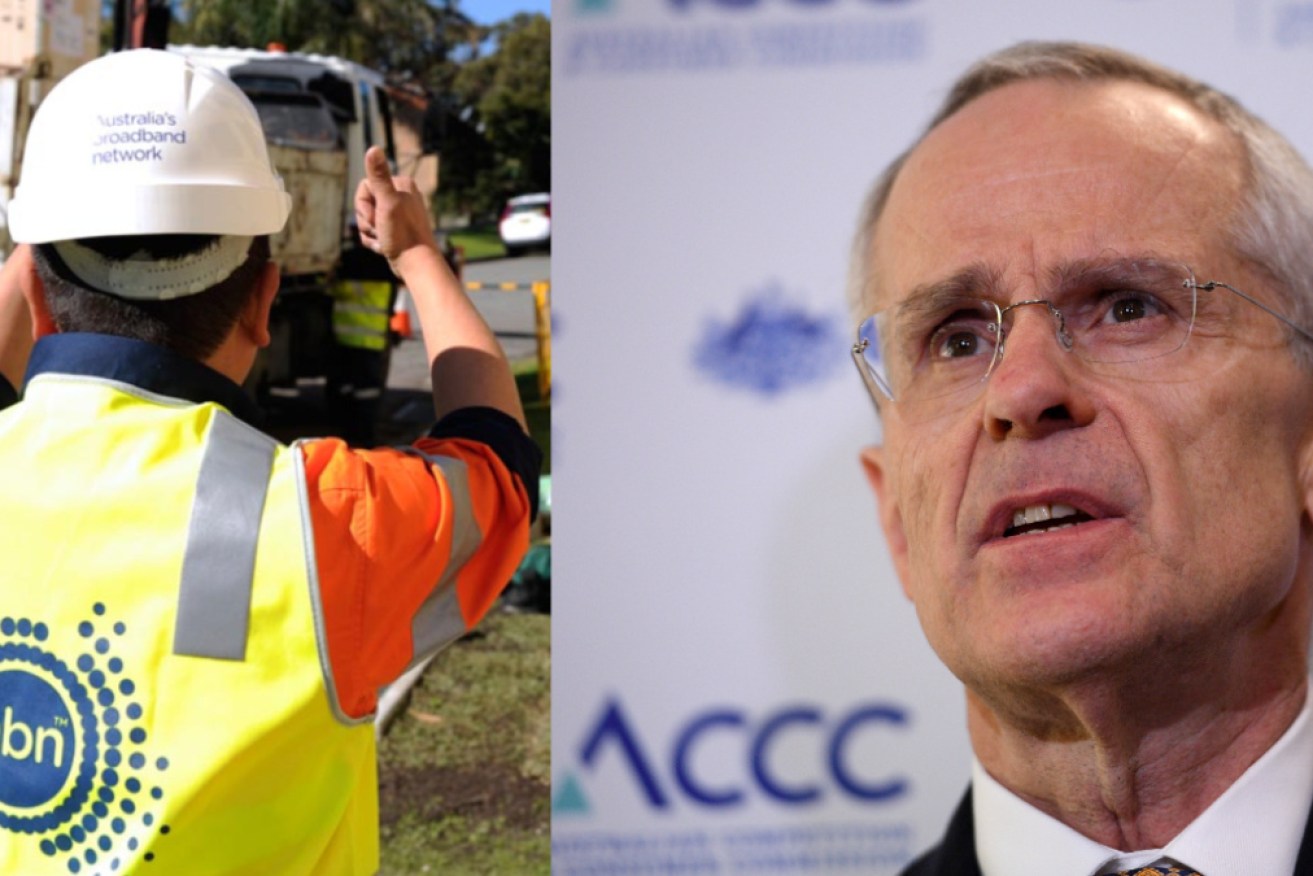NBN speeds and performance hit by coronavirus, recover after capacity boosts: ACCC


Evening NBN speeds are "mostly holding up well" despite "unprecedented" demand, ACCC chair Rod Sims said. Photo: NBN Co/AAP
Australia’s broadband speeds and performance suffered with the coronavirus lockdown, but recovered thanks to capacity boosts and cuts to streaming quality, the ACCC has found.
The consumer watchdog on Wednesday released its latest Measuring Broadband Australia report, which showed how the NBN performed in February, before the COVID-19-related surge in demand, through to April.
The report showed a sharp decline, then a recovery, in the network’s performance, which the ACCC said was principally due to NBN Co’s move to offer retail service providers (RSPs) 40 per cent extra network capacity for free.
Average download speeds on NBN Co’s 50Mbps and 100Mbps speed tiers had dropped by 14 per cent and 23 per cent, respectively, before the move, the ACCC found.
ACCC chair Rod Sims said that Australia’s broadband services had “experienced unprecedented demand during the COVID-19 pandemic, as many people and small businesses have been working from home and making increased use of telehealth, online learning and other services”.
The data shows that “daytime NBN speeds have not been impacted by this additional demand, and evening speeds are mostly holding up well”, Mr Sims said.
Australia’s fixed NBN connections achieved average download speeds of about 85 per cent of their maximum possible speeds during the busy evening hours of 7pm to 11pm in February.
NBN services continued to outperform ADSL services across a range of measurements, the ACCC found, with consumers on NBN 25Mbps plans receiving an average download speed of 22.5Mbps in the busy hours, a opposed to 7.3Mbps for ADSL users.
Mr Sims also praised the “measures adopted by streaming providers” for helping “other online applications to perform well during the busy evening hours”.
In March, Morrison government Communications Minister Paul Fletcher asked popular internet streaming services including Netflix and Stan to cut the quality of their videos so as not to overload the NBN.
Mr Sims conceded these measures had “led to a reduction in picture quality for viewers”.
NBN50 plan ‘sufficient’ for most households
The Measuring Broadband report showed, for the first time, how different NBN plans performed in streaming popular video content from Netflix and YouTube.
The data demonstrates that “higher priced NBN100 services are not generally required to support many households’ consumption of streaming services, and that in most cases an NBN50 service is sufficient”, the ACCC said.
This could mean big savings for many consumers, with a 100Mbps plan costing about $20 more than a 50Mbps plan.
These results should prompt consumers to consider whether they actually need to pay extra for a higher-priced plan, or whether a cheaper plan could meet their needs,” Mr Sims said.
He advised consumers to “consult RSPs’ key facts sheets, which set out what plans are most suitable for using popular online services”.
“If consumers are still uncertain what plan they require they can start on a lower speed plan and move up to a premium higher-speed plan if and when they need to do so,” he said.
Consumers are also having more luck fixing their lacklustre internet connections, Mr Sims said.
“One positive development we have observed is more end users on underperforming services are having their issues resolved,” he said.
“We are seeing improvements with a higher proportion of NBN plans on FTTN connections achieving full speeds.”
However, twenty per cent of Australians with FTTN connections still aren’t getting value for money.
One in five consumers on these connections are still paying for high-speed 50Mbps and 100Mbps plans that are underperforming,’’ Mr Sims said.
He called on more Australians to sign up for the ACCC’s voluntary Measuring Broadband study.
“This pandemic crisis has meant home broadband has become even more critical to Australians in their work, education and leisure activities,” Mr Sims said.
“As more Australians sign up, the more transparency and information we can provide about broadband experiences the better for consumers.”
Broadband customers can apply to be a volunteer here.








